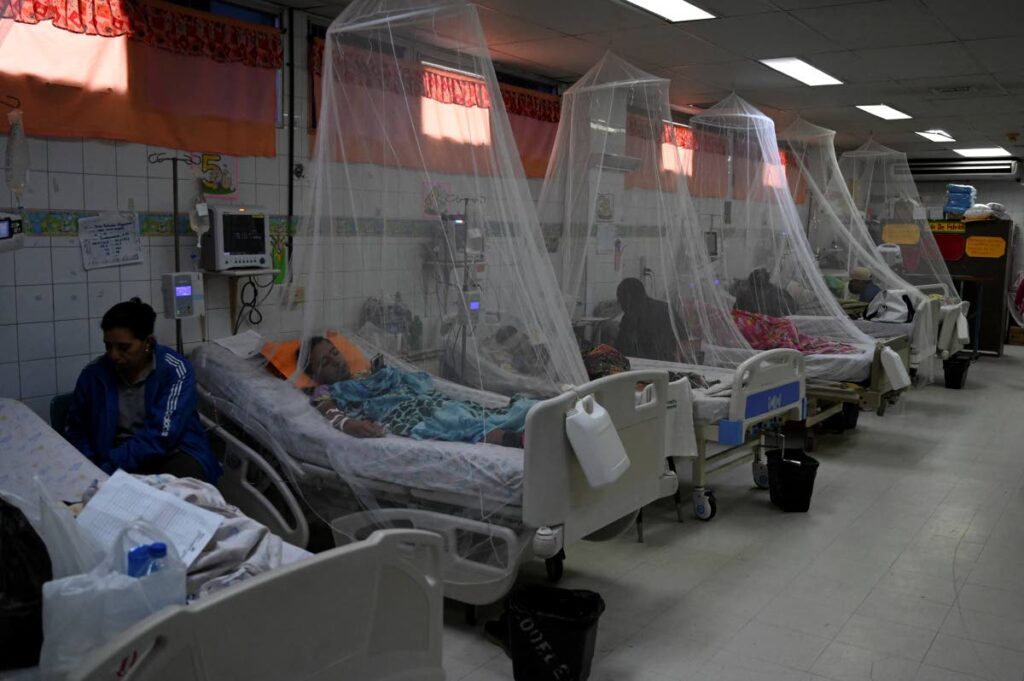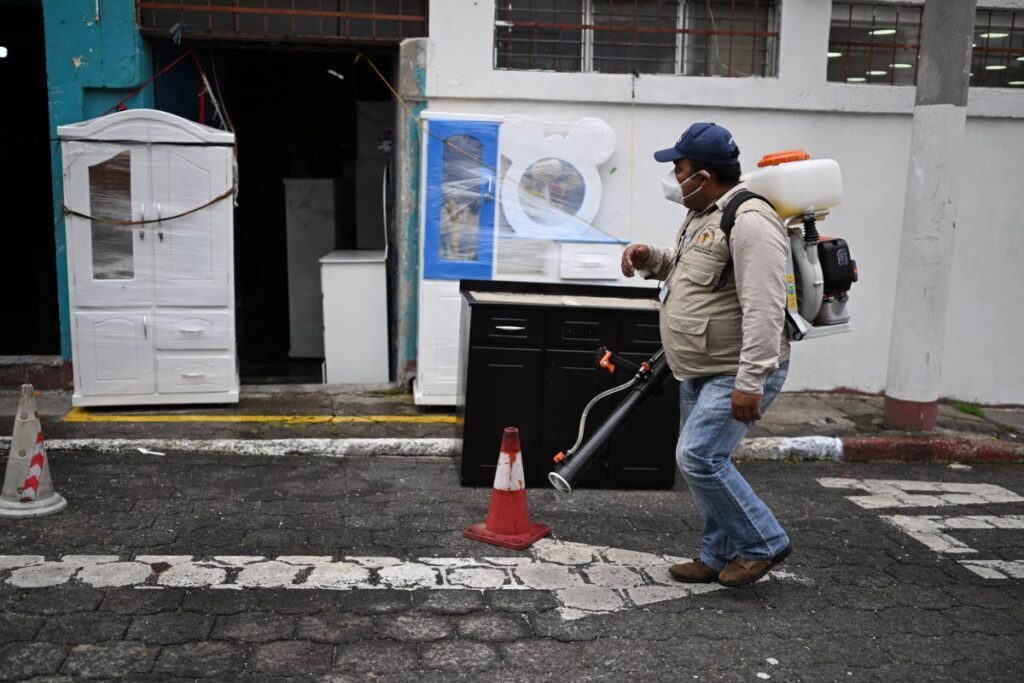CARPHA: Suspected dengue cases up 200-fold

A SPOKESMAN for the Caribbean Public Health Agency (CARPHA) claimed on July 26 that the world has seen a 200-fold increase in suspected cases of dengue this year compared to last year.
Dr Horace Cox, acting director of surveillance, diseases prevention and control, made his startling claim at a hybrid briefing at the Marriott Courtyard Hotel, Port of Spain, held between local journalists present in person and regional journalists interacting virtually via Zoom.
Later, he told reporters the data was for the Americas.
"I know many persons have been looking at the media across the region, also looking at what obtains globally, and they would have seen that we have spikes of cases of dengue.
"It is to say that this was sort of forewarned at the beginning of the year. We understood due to the climatic changes, we should brace in 2024 because it is likely that cases in 2024 will significantly surpass cases in 2023.
"Setting that aside, what we have seen from the data reported so far globally is that you have about a 200-fold increase in suspected dengue cases in 2024 as of the first six months, as compared to the similar period in 2023. So that kind of puts it into context as to what is happening."
Cox blamed an upsurge in dengue on climatic change, frequent inter-island travel, the fact of the Aedes aegypti mosquito being endemic to the region, and a lack of knowledge as to who were the pockets of the population susceptible to dengue.
"Just to continue to put it into context, we know that every five-seven years – this is documented – we tend to see a big spike in cases and we try to use that information to inform how we mobilise our efforts and the timing of our efforts."
Newsday queried the claim of a 200-fold increase in dengue cases by asking what the figures were for last year and this year.
Cox replied, "It is a 200-fold increase in 'suspected cases.'
"We have also seen that trigger effect where you have an increase in confirmed cases, in hospitalisations, in deaths, etcetera." He said the data on suspected cases was broader than the Caribbean region.
"Having said that, I don't currently have with me the disaggregation of what it might look like in terms of hospitalisations and deaths, but we can look to see and share that from a regional perspective as to what obtains because we do have the data, just that I don't have it with me at this time."

Newsday asked if by saying a 200-fold increase, he meant a 200 per cent increase (that is, two more cases for each case last year) or a 200-times increase (200 times more cases.)
Cox replied, "It is 200-fold. It is 200 times the number of suspected cases that we had last year – more at a global level – compared to what we have this year."
Asked about the rise in dengue cases in the Caribbean, he said, "We are currently looking at the data. We have seen the data and we understand the increases. I just used that to illustrate the trickle effect, because as I mentioned, this is not just something specific to the Caribbean. It is happening globally."
The website of the European Centre for Disease Prevention and Control suggested a mere doubling of dengue cases, since last year. It said, "Since the beginning of 2024, over ten million dengue cases and over 5,000 dengue-related deaths have been reported from 80 countries/territories. Most cases globally have been reported from the WHO (World Health Organization) PAHO region.
"The over nine million cases reported by PAHO in 2024 are twice the number of cases reported throughout 2023."
Likewise, the website of the Pan American Health Organization (PAHO), in its situation report 27, also indicated a doubling of dengue cases.
"Between epidemiological weeks one and 27 of 2024, a total of 10,735,818 suspected cases of dengue were reported, resulting in a cumulative incidence of 1,138 per 100,000 population. This represents an increase of 233 per cent compared to the same period in 2023."
The WHO website suggested a near-doubling of suspected cases in the Americas, saying, "The number of cases has already exceeded seven million by the end of April 2024, surpassing the annual high of 4.6 million cases in 2023."
Raising the possibility of a return of two other mosquito-borne diseases, zika and Chikungunya (Chik V), Cox said CARPHA's insect vector control programme included monitoring the resistance of mosquitoes to insecticide. He said while people like to see fogging done against adult mosquitoes, it is also important to curb mosquito larvae.
Cox said CARPHA's shipments to Caribbean regions hit by Hurricane Beryl will include kits to test for the infections covid19, gastroenteritis and sexually transmitted infections. (STDs). He boasted of real-time surveillance of the region against infectious diseases to detect any outbreak and break transmission of the microbe.
Cox said people were still getting infected with covid19, but by a much less virulent strain, with much less hospitalisation and death than at the height of the pandemic.
Newsday asked how the region was coping with AIDS/HIV. Cox said the region had made much progress, amid advances in care. CARPHA's interim executive director Dr Lisa Indar said CARPHA advocated the use of condoms against STIs, not just at parties but also in post-hurricane scenarios. She said CARPHA wanted people to use safe practices.
Locally, the Ministry of Health said on July 24, there are there were 450 laboratory-confirmed cases of dengue fever and five laboratory-confirmed deaths.

Comments
"CARPHA: Suspected dengue cases up 200-fold"